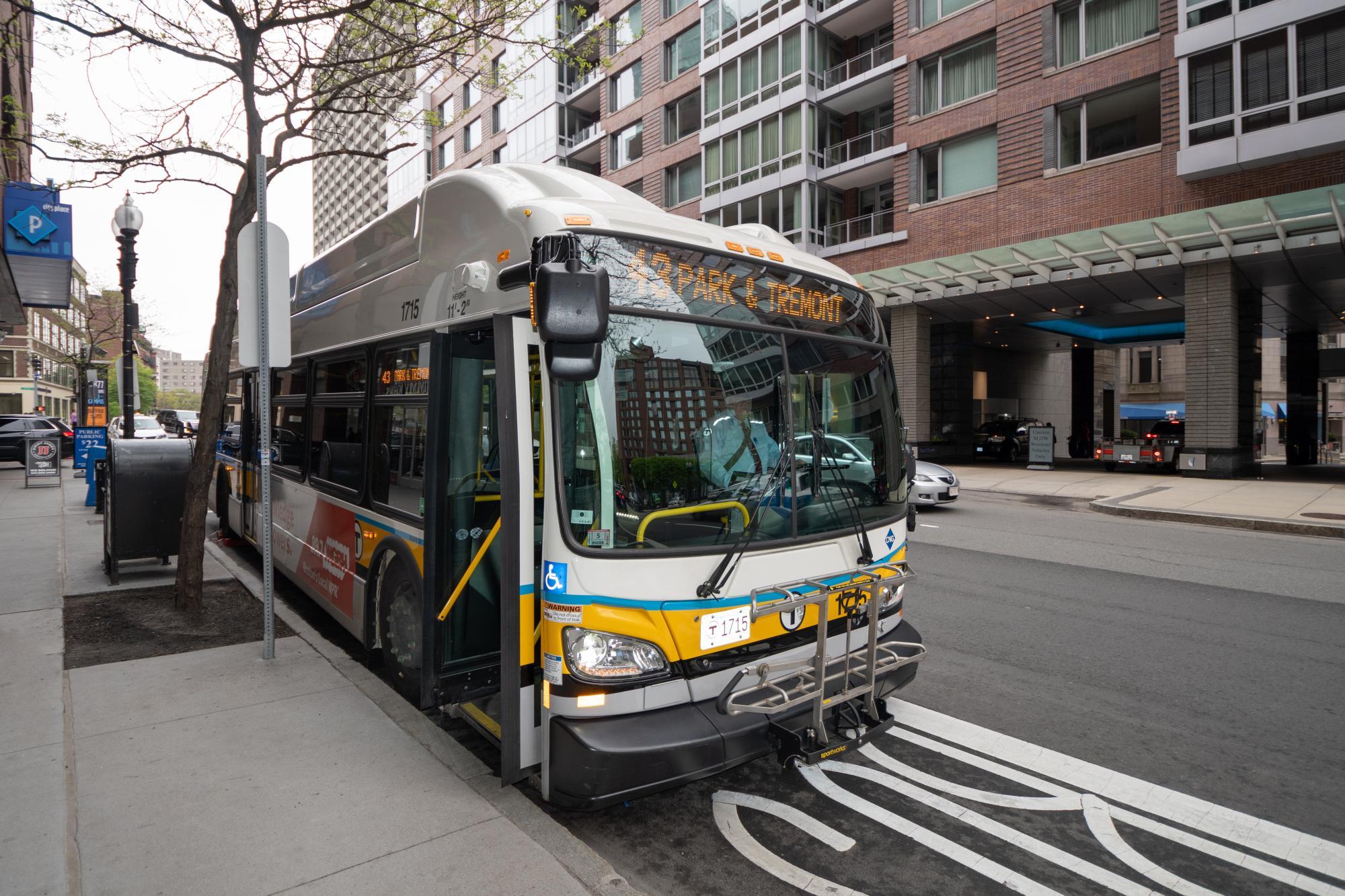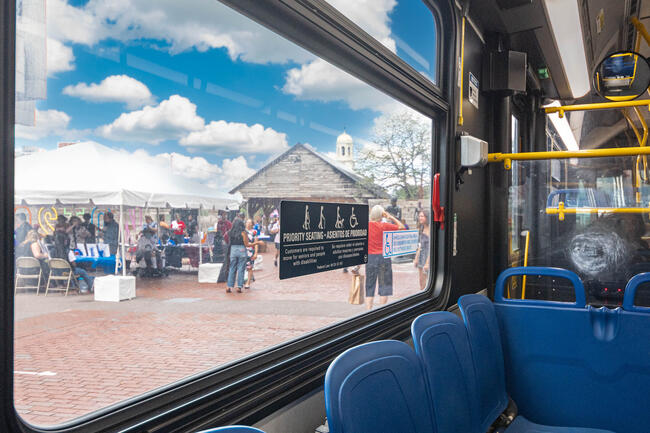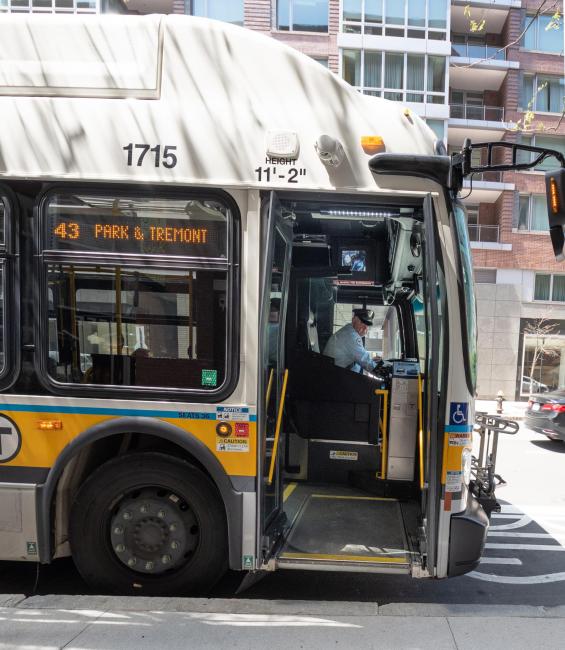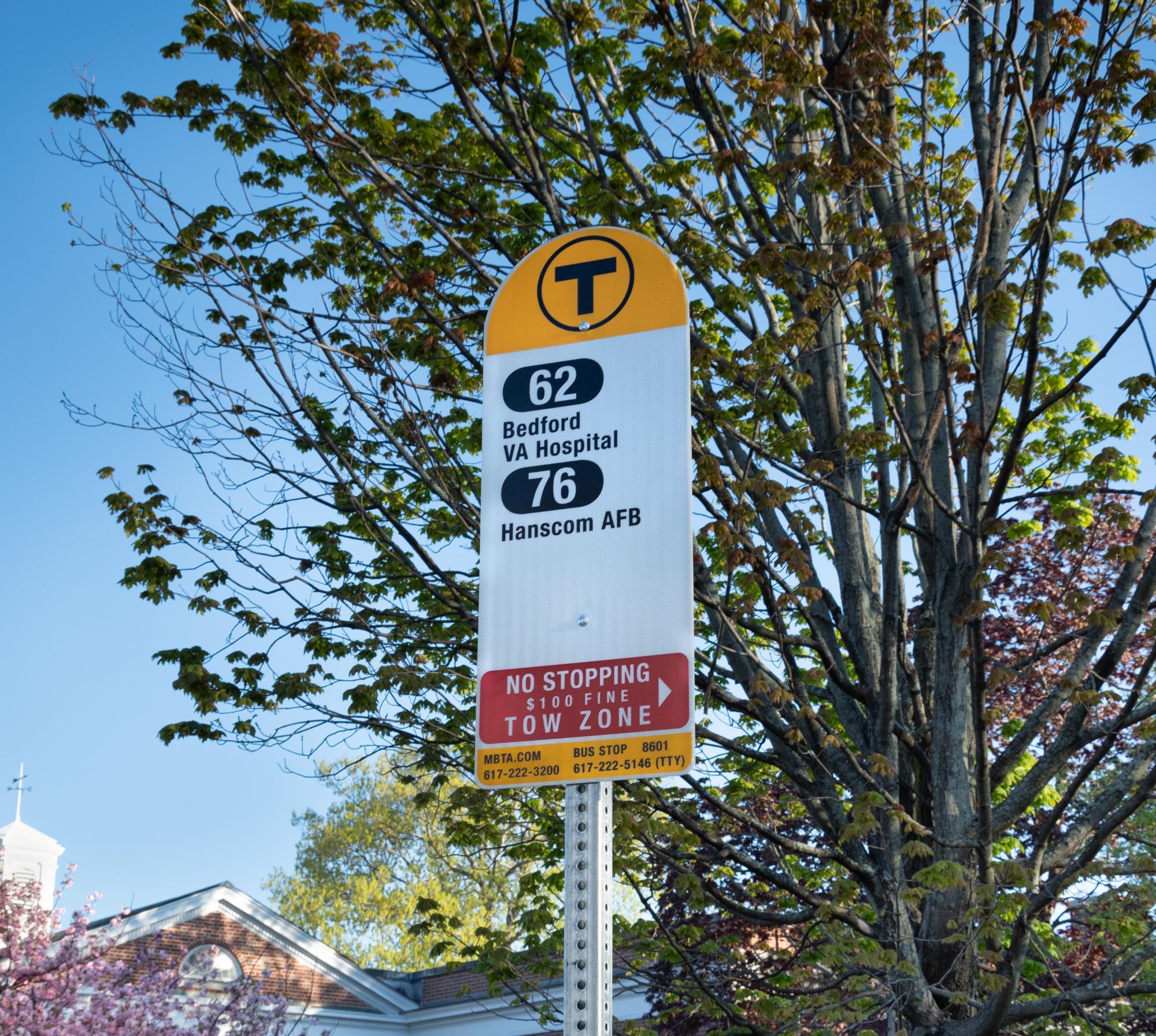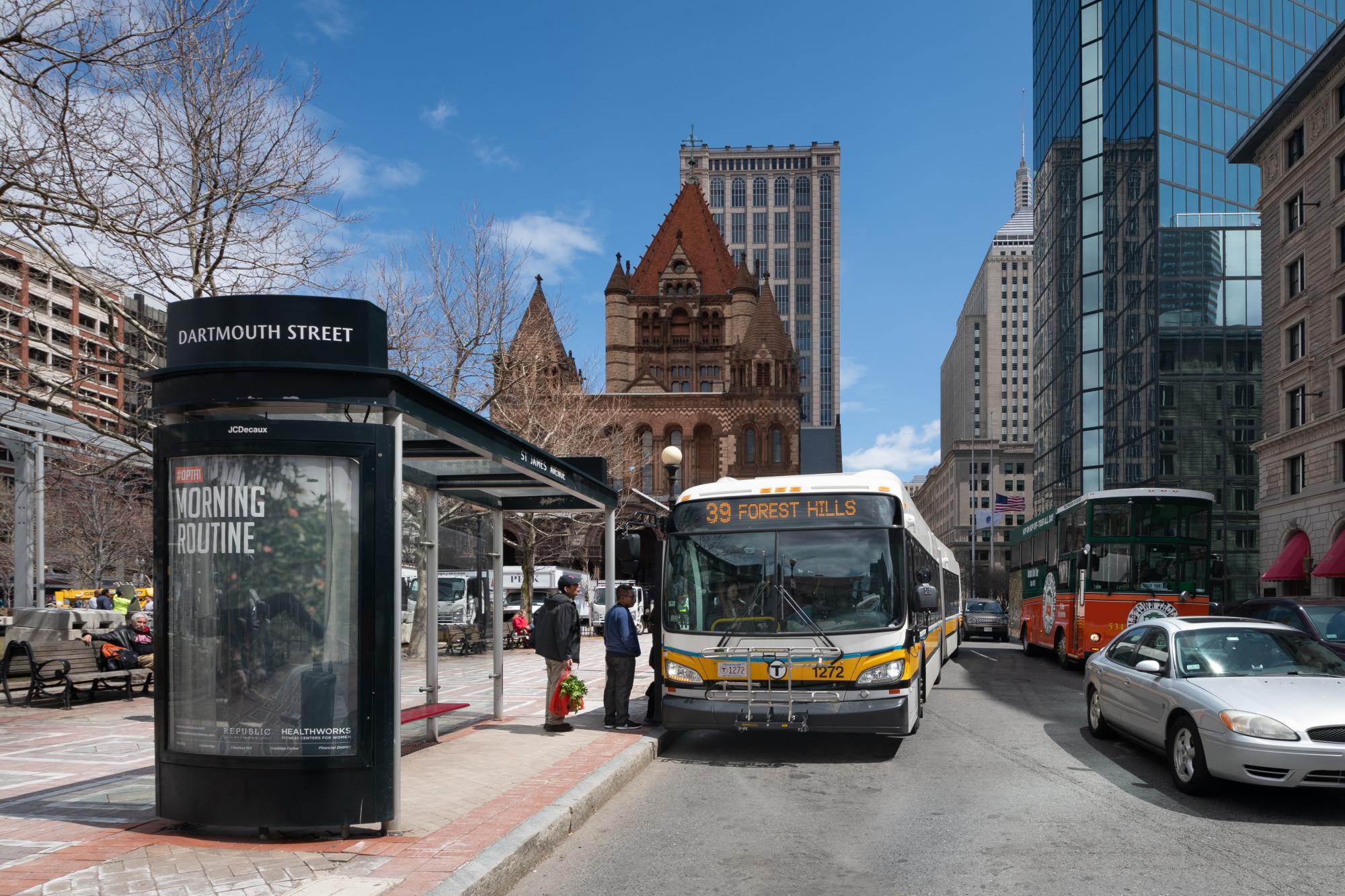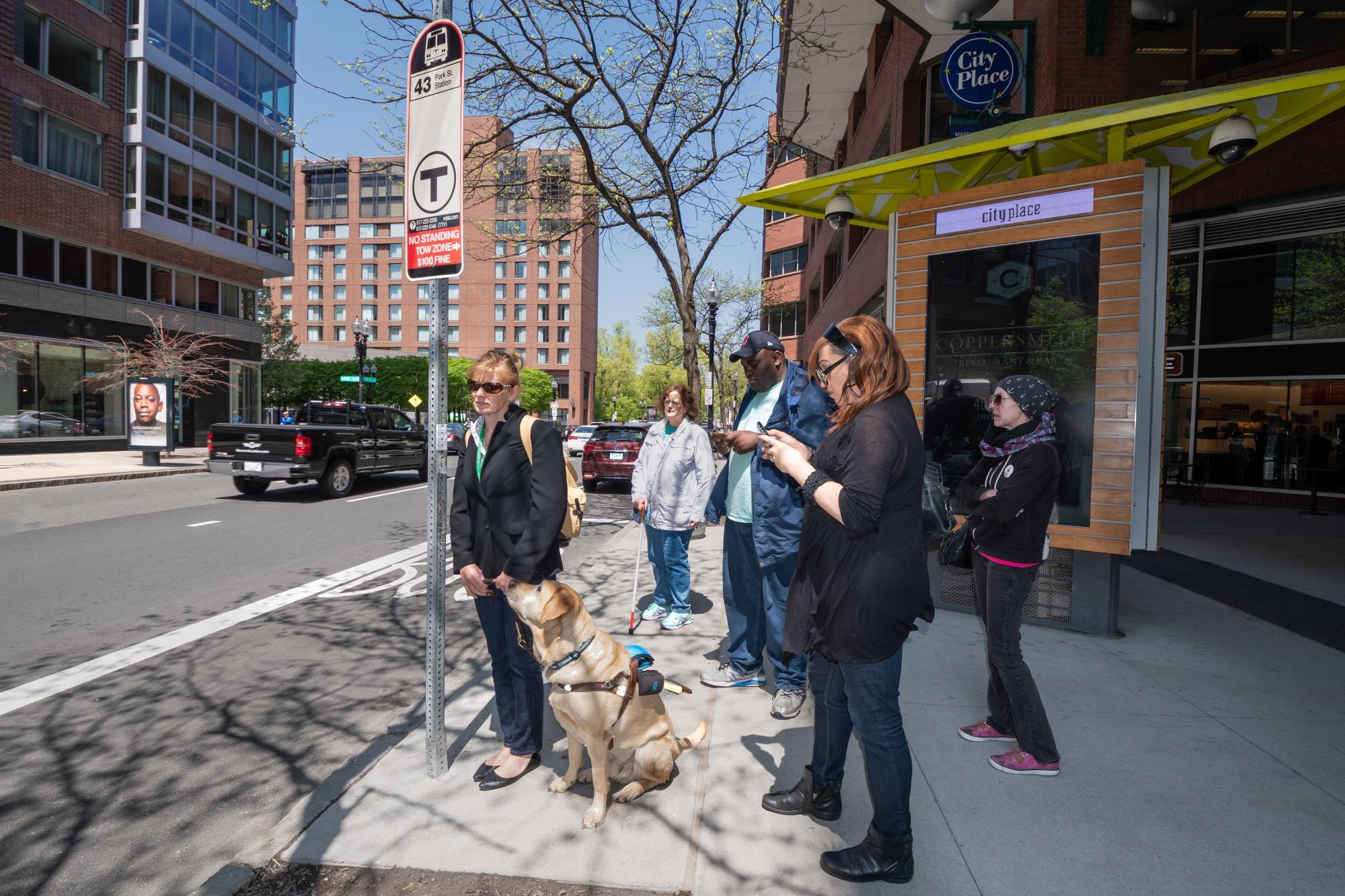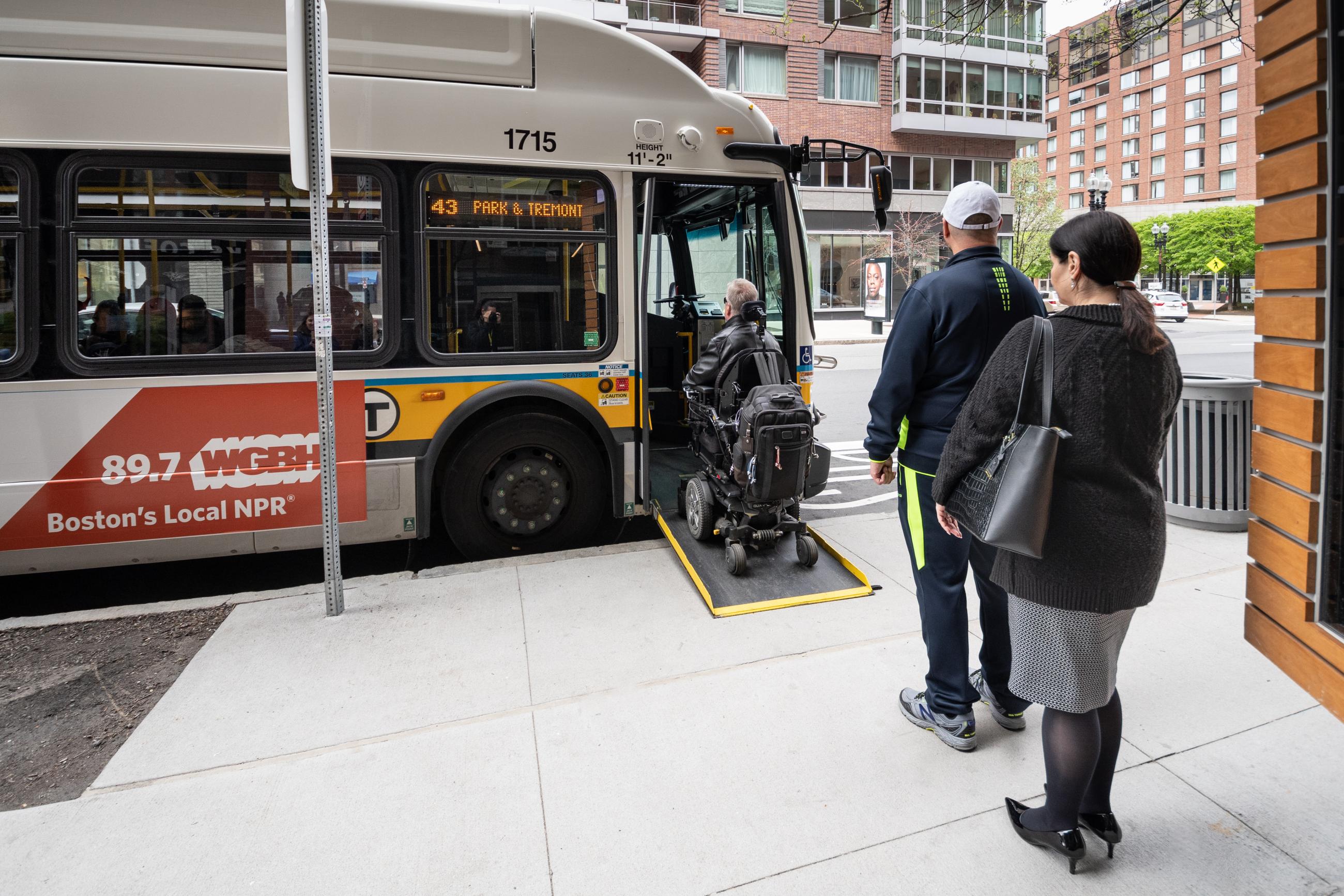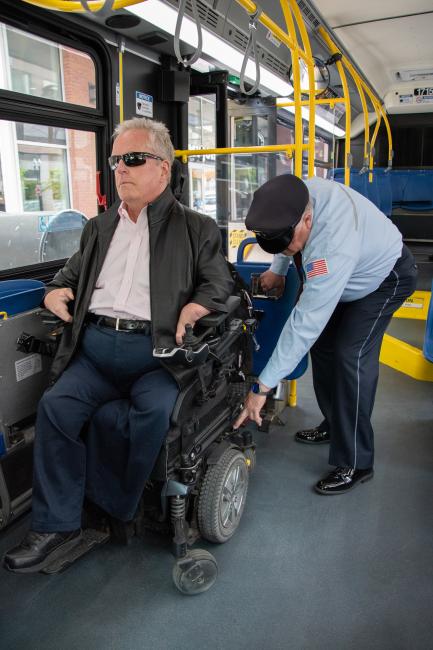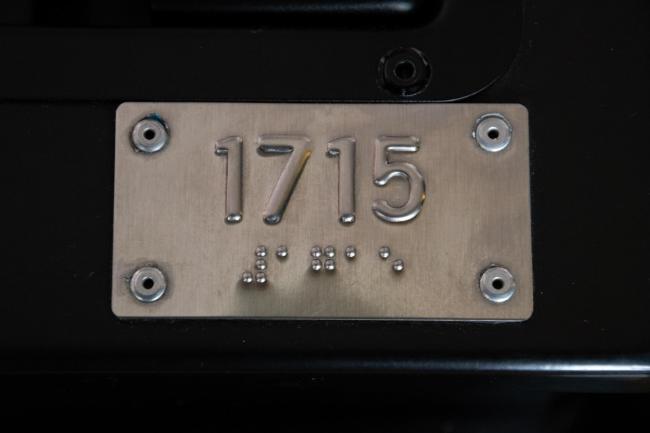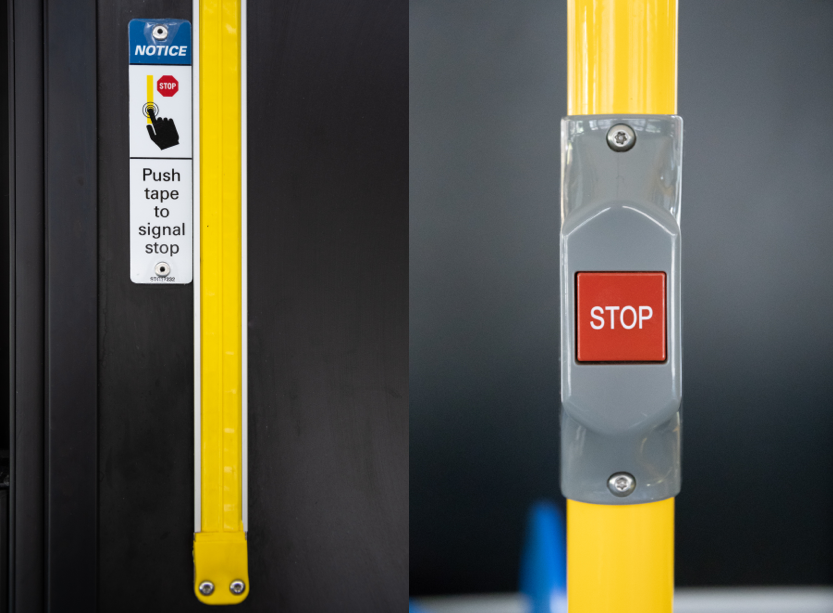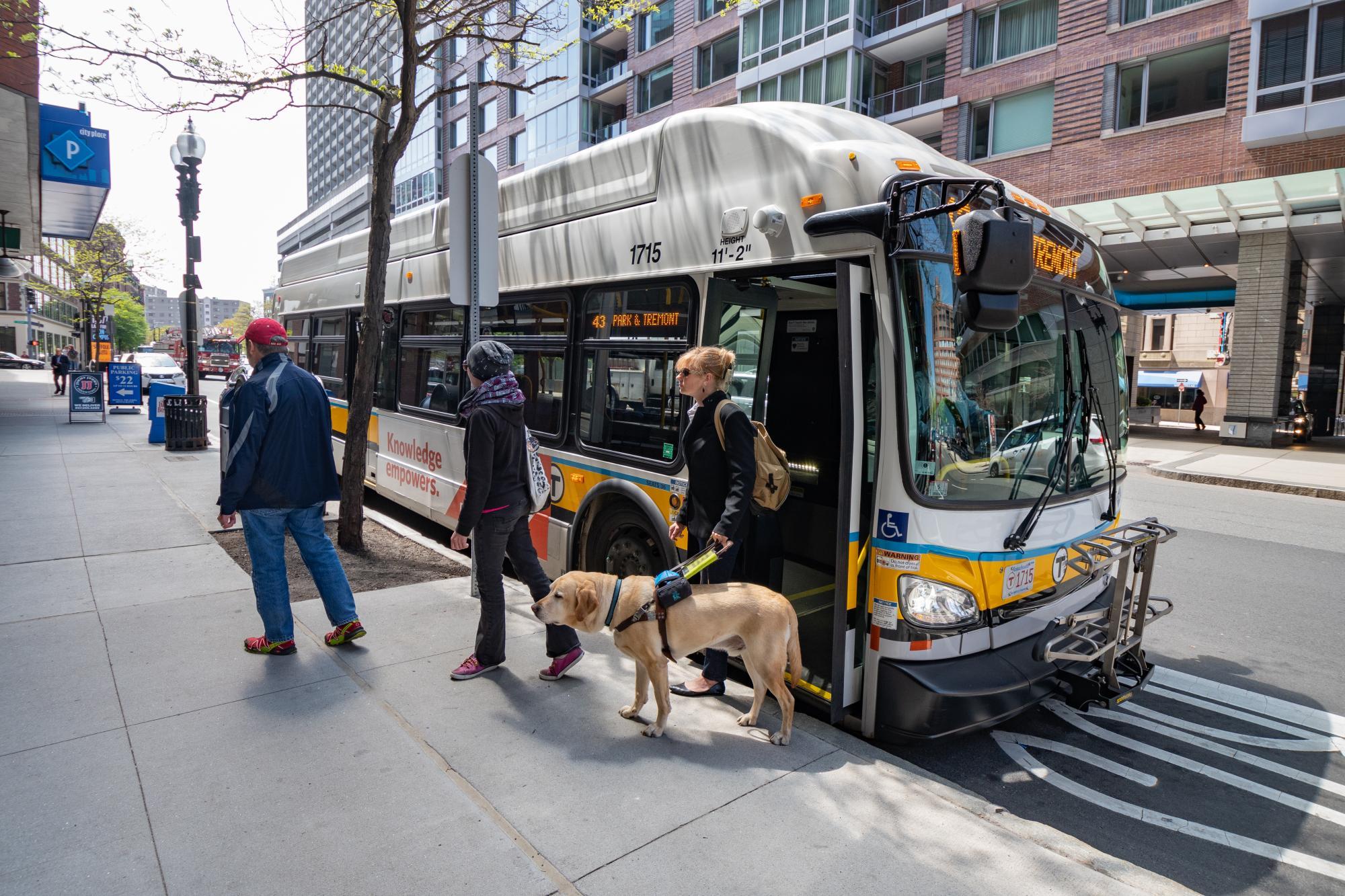Bus Access Guide
The entire MBTA bus fleet is accessible to people with disabilities.
Key features include:
- Buses that can be lowered for easier boarding and exiting
- Onboard ramps at the front door of each bus
- 2 areas where wheeled mobility devices can be secured
- Digital displays and automated announcements that share key route and stop info
MBTA bus operators are trained to respond to all reasonable requests for assistance, including:
- Lowering the bus for boarding and exiting
- Deploying ramps
- Helping with fare payments
- Assistance with finding a seat
- Positioning the bus for easier boarding and exiting
Note: To meet increased service demands, we sometimes use third-party charter buses. These buses may look different than MBTA buses, and some may provide accessibility via a lift in the back rather than a ramp in front.
Planning Your Trip
To ensure your trip on the MBTA is accessible, you can use any of the following tools:
- Plan an accessible journey on the T with the MBTA trip planner
- Contact Customer Support to request bus schedules in large print or braille formats
- Try some of our additional accessible trip planning tools
T Access Guides by Mode
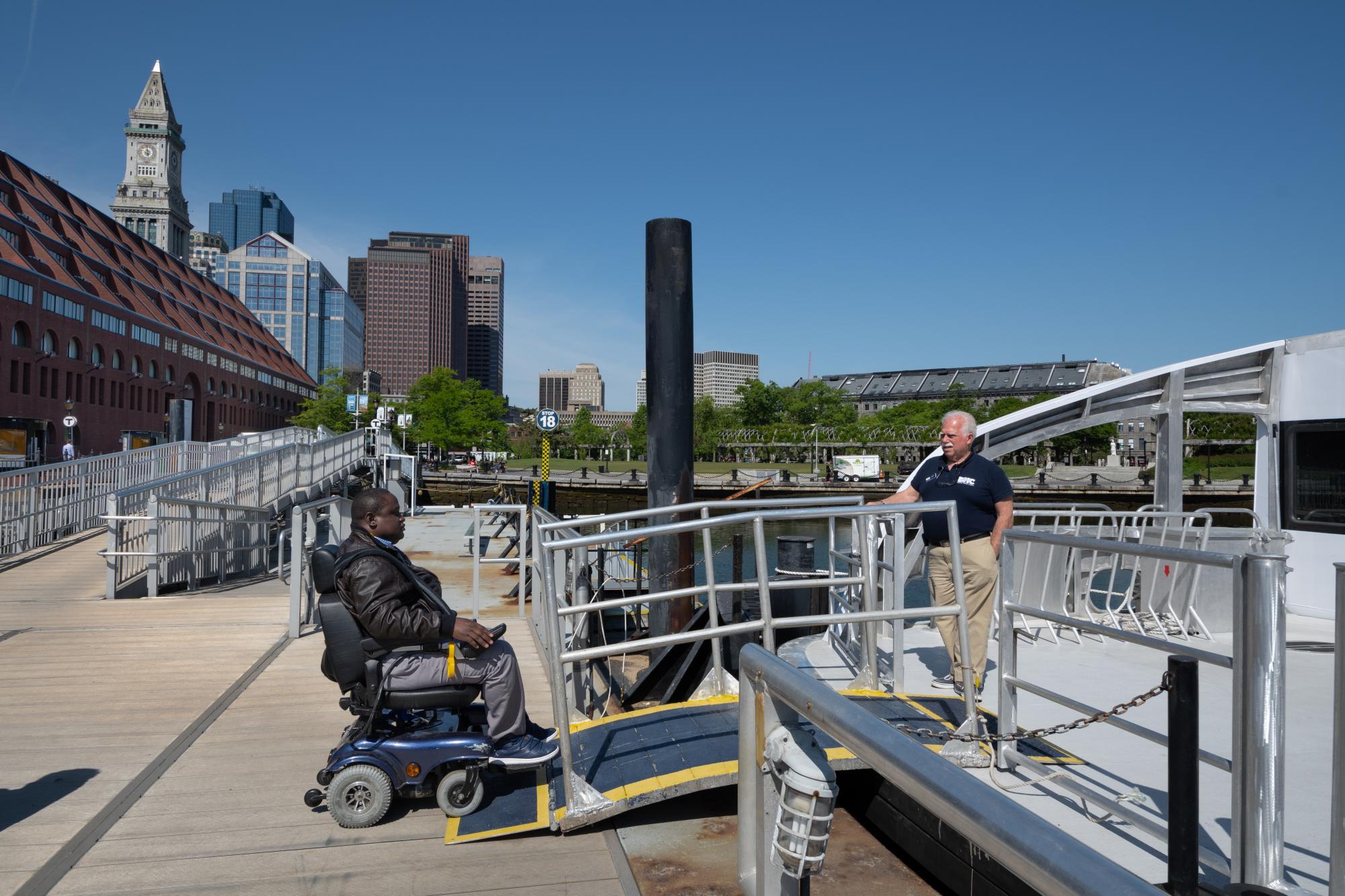
Much of the MBTA is accessible. Learn more about accessibility features on each mode of transit with our access guides.
Fares and Passes
People 65 and older and people with disabilities may qualify for reduced bus fares.
Apply through the CharlieCard Store at Downtown Crossing to receive a:
As of Tuesday, September 5, 2023, the CharlieCard Store has been temporarily relocated to the State Transportation Building at 10 Park Plaza, due to maintenance issues.
What You Can Expect at an MBTA Bus Stop
Most MBTA bus stops are labeled with white, black, red, and yellow signs with a large “T” logo. Newer signs have yellow markings across the top and bottom. Signs also include a list of the bus routes that serve that particular stop.
Many bus stops also have accessible shelters in case of cold, rainy, or snowy weather.
The MBTA and municipalities do their best to keep bus stops clear for easy boarding. Contact the owner of the stop if your bus stop is obstructed.
While waiting for your bus, please stay a safe distance from the curb. As the bus approaches, try to position yourself near the bus stop sign where you’ll be most visible to the operator so they know they need to stop.
Boarding an MBTA Bus
The destination and route of each bus is displayed on the front and side of every vehicle, and will be announced by an automated system at every stop. You can also ask the operator for the bus route number if you’re unsure.
Bus operators are required to pull as close to the curb as possible at every stop. If they cannot pull close to the curb, they will help you board at a safe location nearby. If there isn’t one, they will call the dispatcher for assistance.
All MBTA buses can be lowered to make boarding easier. Ramps are available to help any customer who asks to use them.
If you use a wheeled mobility device, the operator may pre-board you to ensure there is space in the securement area.
Boarding with a Wheeled Mobility Device
If you use a wheeled mobility device, make your way towards the securement area and position your device so it faces the front of the bus. Lock the wheels and/or turn off the power. The operator will secure your device.
Wheelchairs must be secured by 4 straps. Scooters must be secured by 3 or 4 straps. If you want to use a lap and shoulder belt, the operator will assist you.
If you use a scooter and would prefer to sit in a standard bus seat, the operator can help you move to a seat once the scooter is secured.
The operator may ask you for your destination stop so they can find a safe place for you to exit. If you’re not comfortable sharing that information, you don’t need to.
Beginner's Guide to the Bus
On Board the Bus
On most MBTA buses, the vehicle number is printed in raised numbering and braille on top of the box on the passenger side of the bus, in the corner nearest the operator. The badge number of the bus operator will also be periodically announced and displayed on a screen at the front of the bus.
Paying Your Fare
All MBTA buses are equipped with fare boxes that accept CharlieCards, CharlieTickets, and cash fare payments. If you need assistance with the farebox, the bus operator will help you.
Priority Seating
Priority seats are available near the front of the bus. Operators are required to ask customers to make priority seating available upon request. Customers are expected to yield their seats to older adults and people with disabilities, but cannot be forced to move.
If there are no priority seats available, the operator can help you to another seat or call the dispatcher to find out when the next bus that can accommodate you will be arriving.
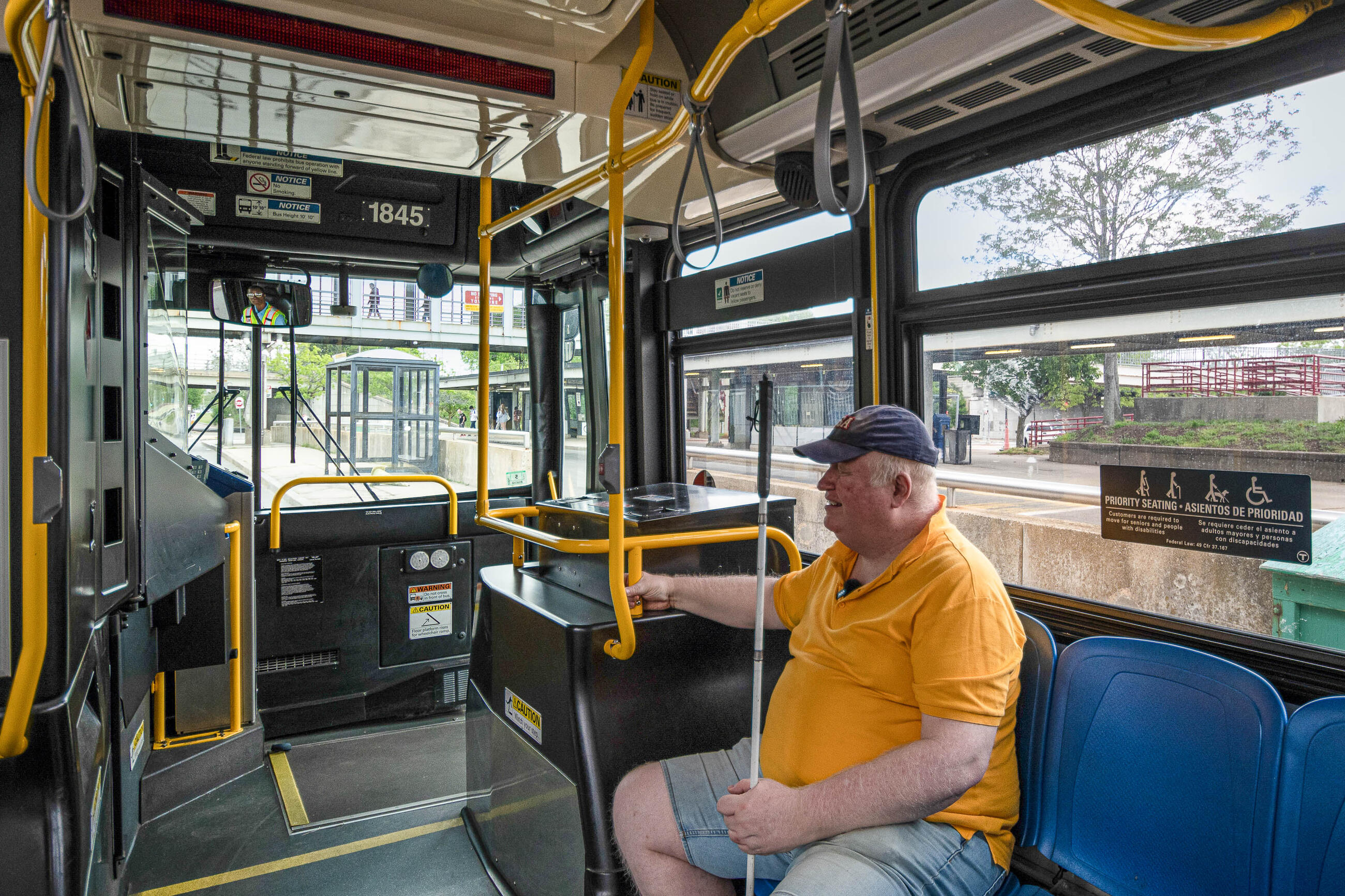
Stop Announcements
All stops and transfer points are announced automatically and displayed on a screen at the front of the bus. If the automated system isn’t working, the MBTA operator will make those announcements.
Exiting the Bus
On MBTA buses, stops must be requested by pressing the yellow or gray strips located near the windows of the bus, or the red “Stop” buttons located on vertical handrails. If you need help finding your stop, ask the operator for assistance.
If the operator cannot pull close to the curb at your requested stop, they will help you exit at a safe location nearby. If there isn’t one, they will call the dispatcher for assistance.
If you need the bus to be lowered or would like to use a ramp to exit, the operator can assist you.
New to the bus?
Learn more about schedules, maps, and navigating the system.
Check out our Beginner's Guide to the Bus
How to ride the bus
T Access Guides by Mode

Much of the MBTA is accessible. Learn more about accessibility features on each mode of transit with our access guides.
